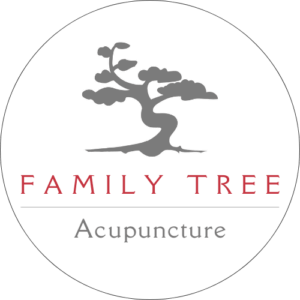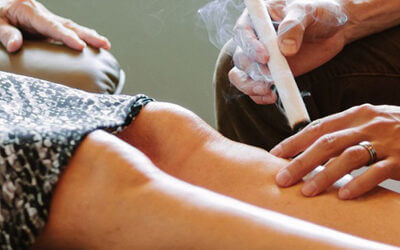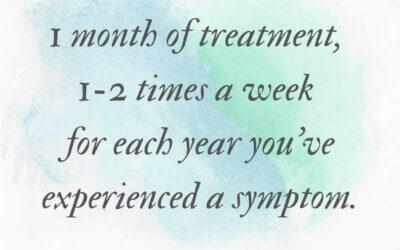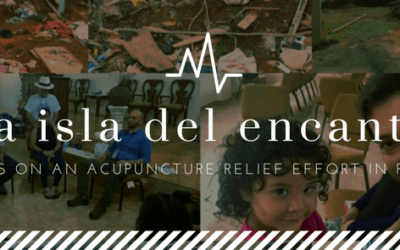A week or so ago, I found myself enveloped and ambushed by lists. Mind you, these were lists I had made myself. I had a grocery list in my back pocket, a home to-do list on my iPhone, a work to-do list taped to my desk, a gift list gaining strength in my purse…and I’ll stop there before I really embarrass myself. I consider lists to be a brain-dump of sorts: a place to dispose of ruminating thoughts so that I can clear more space in my head for things like….oh, say, a laundry list.
What I’ve learned over the years is that my list-making is more a manifestation of anxiety than it is a useful tool for organizing my life. I know this because when I take the time to address the anxiety and engage in self-care, I usually end up throwing my lists away.
Anxiety, being an emotion that has woven itself into the human condition, is something to which we can all relate. It’s an emotion characterized by feelings of tension, worried thoughts and physical changes such as heart palpitations, unusual sweating or an increase in blood pressure. For some of us, this feeling is situational. For others, it’s constant and even debilitating.
In Chinese medicine, anxiety can be related to an imbalance of any of the major organs, but we most often look to the heart and the spleen.
The heart is the house of the mind.
When the mind is disturbed by emotional upsets, it can weaken the heart and create an imbalance. This can lead to physical symptoms such as heart palpitations, chest pain or insomnia. Makes sense, right?
But the spleen? From a western point of view, the spleen retains the status of the red-headed stepchild. In Chinese medicine, however, this organ is hugely influential in the digestive process.
So how do digestion and anxiety go together? When you consider that Chinese medicine looks at the physiological as well as the emotional aspect of an organ, then the connection becomes clear. The emotion associated with the spleen is “pensiveness,” or a state of dreamy, wistful thoughtfulness. Excessive pensiveness in the form of thinking, worrying or brooding over a long period of time can weaken the spleen, and subsequently, the digestive system (ever had to run to the bathroom before giving a speech?). Alternatively, if your digestive system is in a compromised state as a result of an illness, this can affect your thoughts and lead to feelings of anxiety.
Regardless of whether or not you suffer from occasional anxiety or are debilitated by this particular emotion on a regular basis, there are things you can do to feel more balanced and grounded.
1) Recognize
Unless your anxiety is really overt in the form of panic attacks, it can disguise itself and even evade you. Is that stomachache the result of your breakfast sandwich, or is it a physical manifestation of the argument you had with your friend? Start to become aware of the behaviors that manifest when you are feeling anxious. Do you eat more junk food? Become fearful of activities that normally don’t bother you? Make lists? Feel tired all the time? Clean the house? Become very self-conscious? The sooner you are aware that anxiety is ramping-up, the easier it will be for you to get back into a state of balance.
2) Engage in something creative
Specifically, I mean something that involves repetitive, small movements with your hands. In Chinese medicine, these thoughtful, deliberate, soft and repetitive movements with the fingers have a calming effect on the heart: painting, playing an instrument, knitting, doodling, tinkering. No texting or typing. Not the same.
If your anxiety just shot through the roof, let me be clear: no artistic background is required! This is about the process, not the product.
Case in point: I pretty much collaged my way through graduate school. I used the process as therapy and the product as a study aid. If you have a magazine, a pair of scissors, and a glue stick, you’re good to go. There’s something very therapeutic about tearing paper and cutting out small pictures.
3) DIY Acupressure
Stimulate Heart 7. We use an alpha-numeric system for labeling the acupuncture points throughout the body. Heart 7 is the 7th point on the heart meridian, and it’s used to balance the heart and calm the mind. It’s located on the outer edge of the pinky-side of the wrist when your palm is up. Place the thumb of your right hand in the notch between your wrist (or pisiform) bone and the bony protuberance about an inch below your wrist (the styloid process of the ulna). You should be able to feel a tendon in this area. Make sure your thumb is pushing in and underneath that tendon. You might feel an ache or a heavy sensation while you’re doing this. Don’t worry, it just means you’ve hit the money spot! Press and hold for at least 30 seconds and up to a few minutes.
4) Make time to eat
Sounds simple, right? How many times in the last 24 hours have you taken at least 30 minutes to sit down without distraction (phone, computer, work, television) and focus on your food and the experience of eating? Our digestive system becomes weakened by eating on the run, eating sporadically, overeating, or eating while multitasking. Remember the connection between digestion and anxiety?
I challenge every one of you, anxious or not, to carve out 30 minutes at least once a day to sit down and enjoy a meal.
If you are in the company of a friend or family member, keep the conversation light. No debating the state of the healthcare system or detailing the latest family drama. Instead, chew slowly, put your fork down in-between bites, and really TASTE your food. Your spleen and your state of mind will be better off for it.
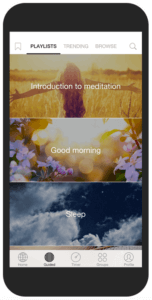 5) Meditation
5) Meditation
Staying present while eating (or doing anything for that matter)? Easier said than done, which is why we love this meditation app. Insight Timer helps you bring awareness to your everyday activities while promoting a sense of calm. This FREE app gives you access to over 4,400 guided meditations ranging from 1 minute to 3 hours. You can do anything for one minute, right? Over 1,000 of the world’s best meditation teachers are featured on this app, and there’s something for newbies and veteran meditators alike. Meditation is a proven method for reducing stress and anxiety. As such, Family Tree offers every patient the opportunity to listen to a guided meditation during private acupuncture sessions. And that, my friend, is some efficient natural stress-relief.
5) Acupuncture & herbal medicine
No matter what ailment a patient wants to focus on in our office, the consensus is that he or she leaves feeling much more relaxed. This is not just a side-effect of acupuncture treatments, but it’s the primary focus for many of our patients. Using acupuncture and herbs, we can correct imbalances in the heart, spleen or other organs that lead to symptoms such as situational or chronic anxiety. Having said that, there is no one-size-fits-all approach to treating anxiety. We conduct a thorough health history with all of our patients in an attempt to uncover the specific imbalances that are leading to your unique symptoms.
If you have anxiety about acupuncture, we get it. Lots of people do. For those who can’t stand the thought of needles, we offer herbal medicine, heat therapy, therapeutic massage or cupping, to name just a few other things in our bag of tricks. As a former needle-phobe, I particularly enjoy working with people who are fearful or hesitant about the acupuncture needles. My philosophy is 1) to follow your lead and 2) less is more.
I’d love to hear from you. As human beings, we all experience anxiety from time to time. What techniques do you use to stay grounded and help take the edge off of anxiety? Share your tried and true methods with us in the comments below, and if you know anyone who could benefit from the information in this blog post, don’t forget to pass it along!
With peace and in health,
Maggie

